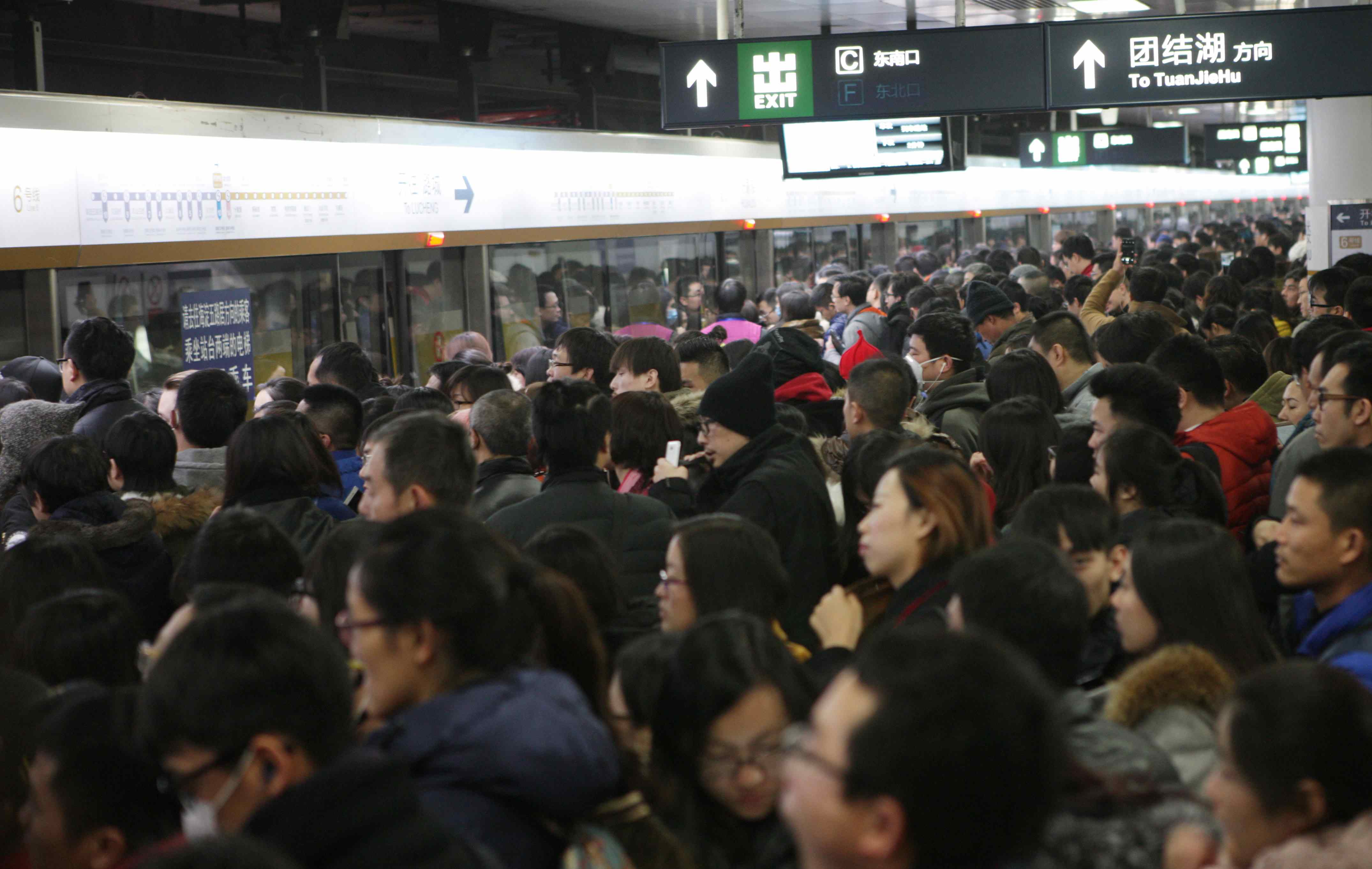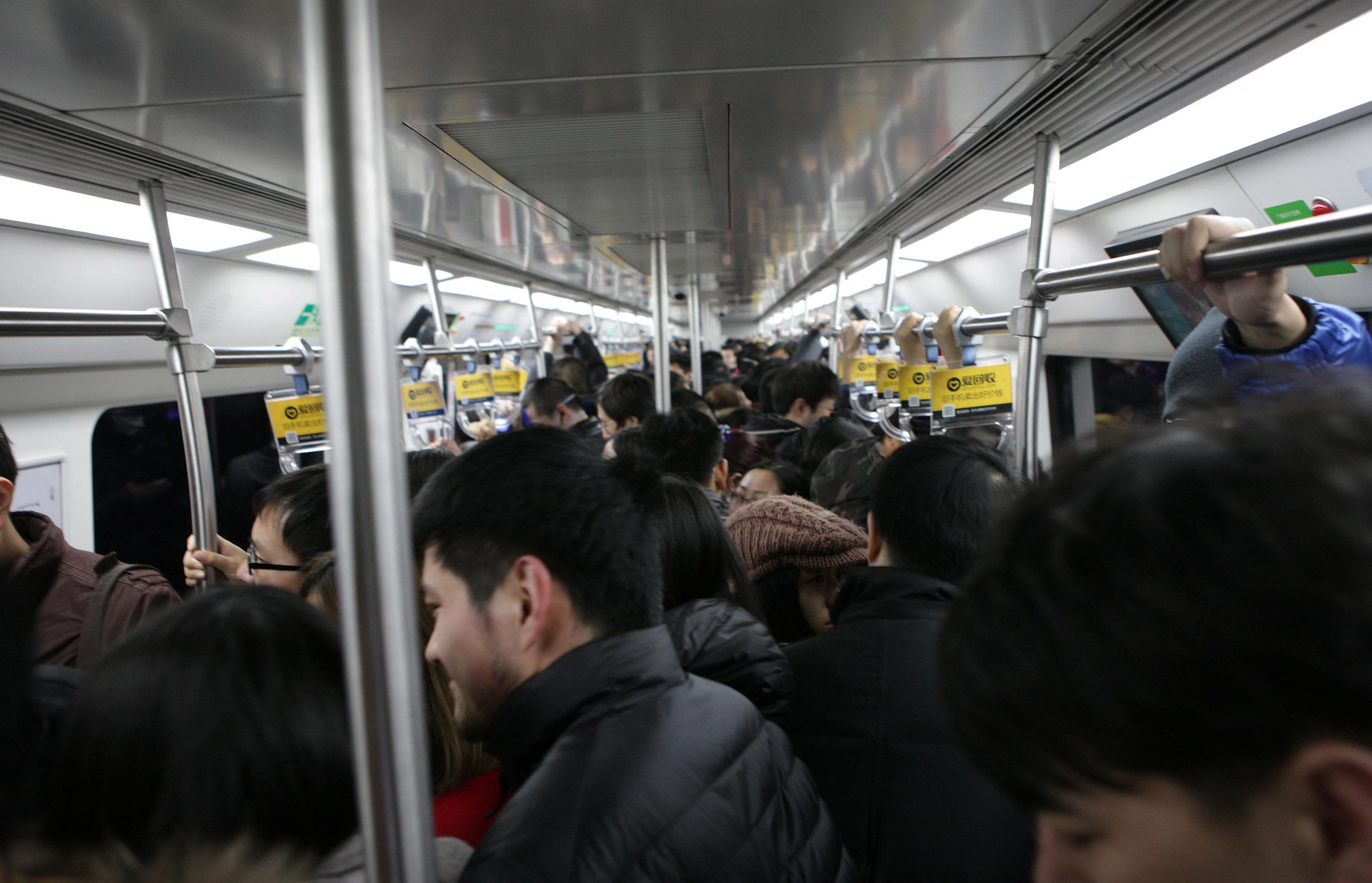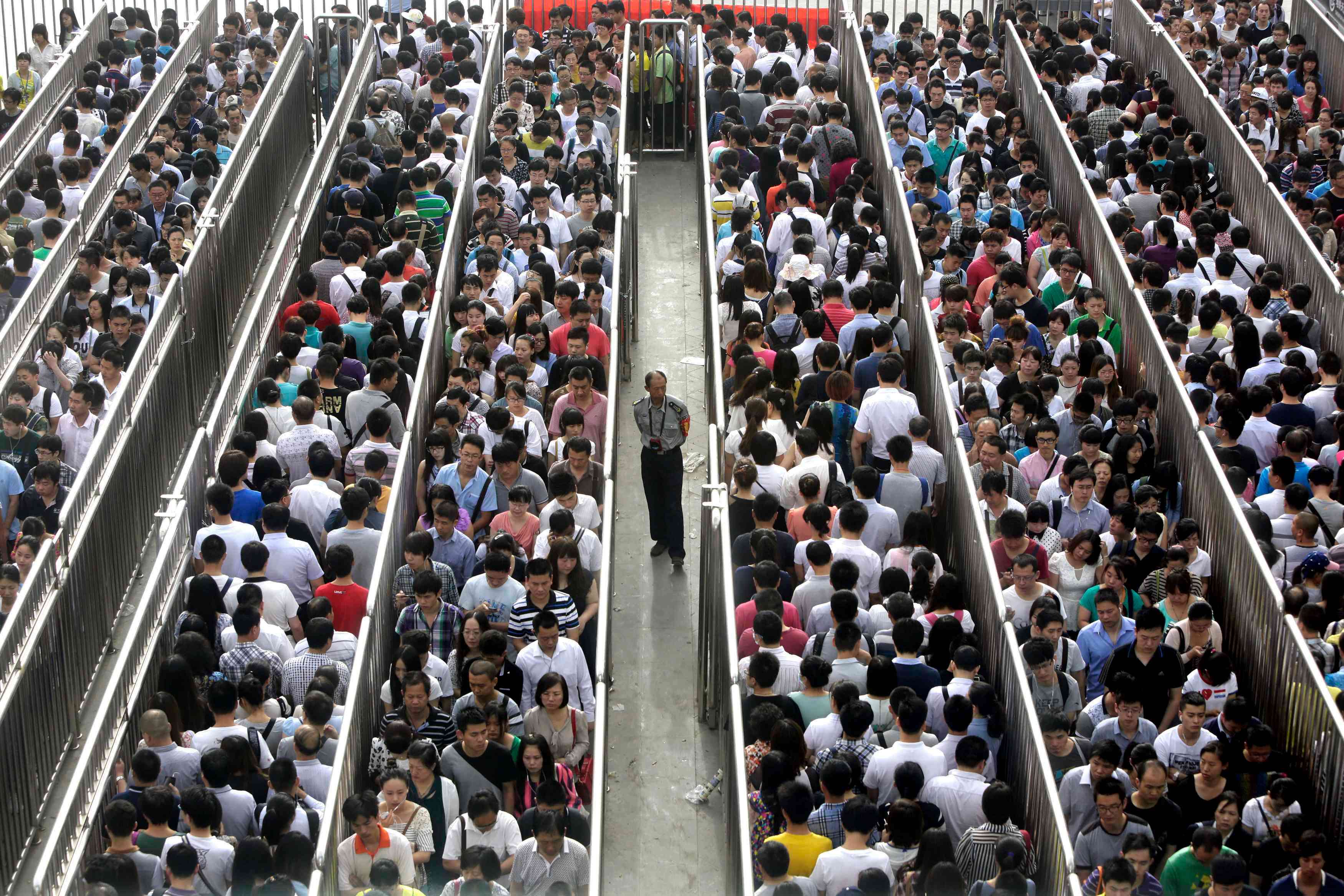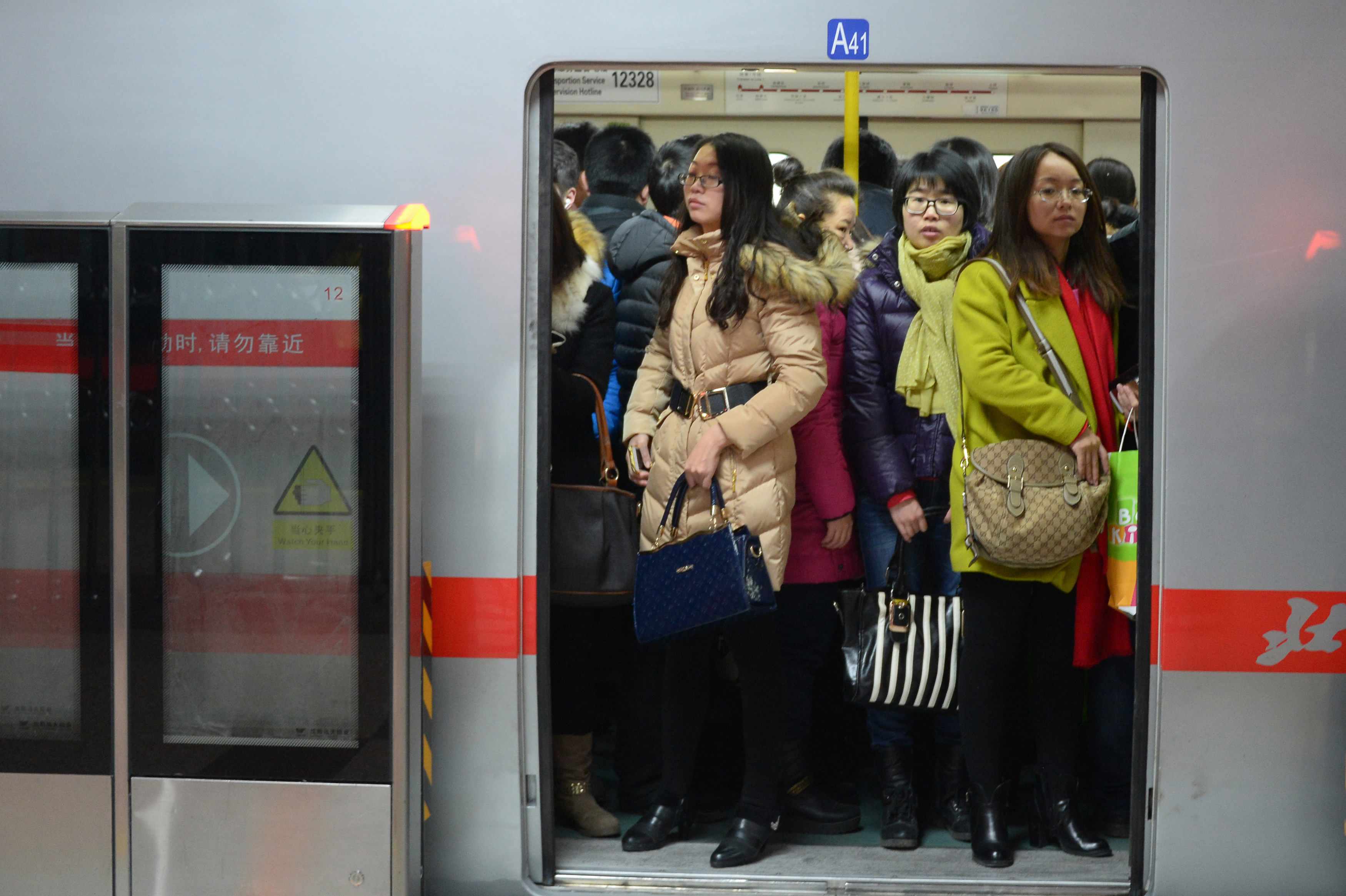A passenger who was paralyzed after a pushing incident during rush hour on the Beijing subway will receive 260,000 yuan (37,000 US dollars) in compensation three years after the accident, a Beijing court has ruled, according to local media.

VCG Photo
The man, identified as Wang Tao, was about to get on a carriage on Line 5 during the peak morning period when the force of the scrambling crowd behind him shoved him so hard he slammed into the glass door of the opposite side and lost consciousness, Legal Evening News reported.
Commuters’ appeals for help fell on deaf ears from other passengers and subway staff, and it wasn’t until the train reached Lishuiqiao Station, three stops away from Tiantongyuan North where the 55-year-old man got on, that Wang received assistance.

VCG Photo
Beijing subway staff called an ambulance and had him rushed to the Emergency Center of the Beijing Red Cross where Wang stayed for five days for medical treatment, during which he was declared quadriplegic.
According to the medical diagnosis, Wang suffered a cervical spinal cord concussion, which was aggravated by cervical spondylosis, a degenerative process that affects the vertebrae and discs due to age. He was transferred to another hospital for an operation.
The hospital classified Wang’s injury as Grade 4 on a 10-level disability rating system, which means he was paralyzed and unable to walk.

VCG Photo
Wang took the Beijing Mass Transit Railway Operation Corporation, as well as the operator of the subway Line 5 (which is a different company), to court. He sued them for negligence in management and demanded 1.9 million yuan (275,000 US dollars) in compensation for the medical fees he paid and work loss.
However, the companies said that the train did stop and argued there was no operation flaw when Wang was injured, and emphasized that the corporation had fulfilled its obligations on security.

VCG Photo
“For safety reasons, we remind passengers via in-station broadcasting to board trains in an orderly way and have staff members guiding [passengers when a large volume of passengers are expected at stations]. We also helped the victim,” the representative of the operation corporation explained, noting that “we compensated Wang but he rejected.”
The Changping District Court that handled the case said the two companies failed to provide sufficient evidence that reasonable safety protection was provided during rush hour, and held them 20 percent liable.









